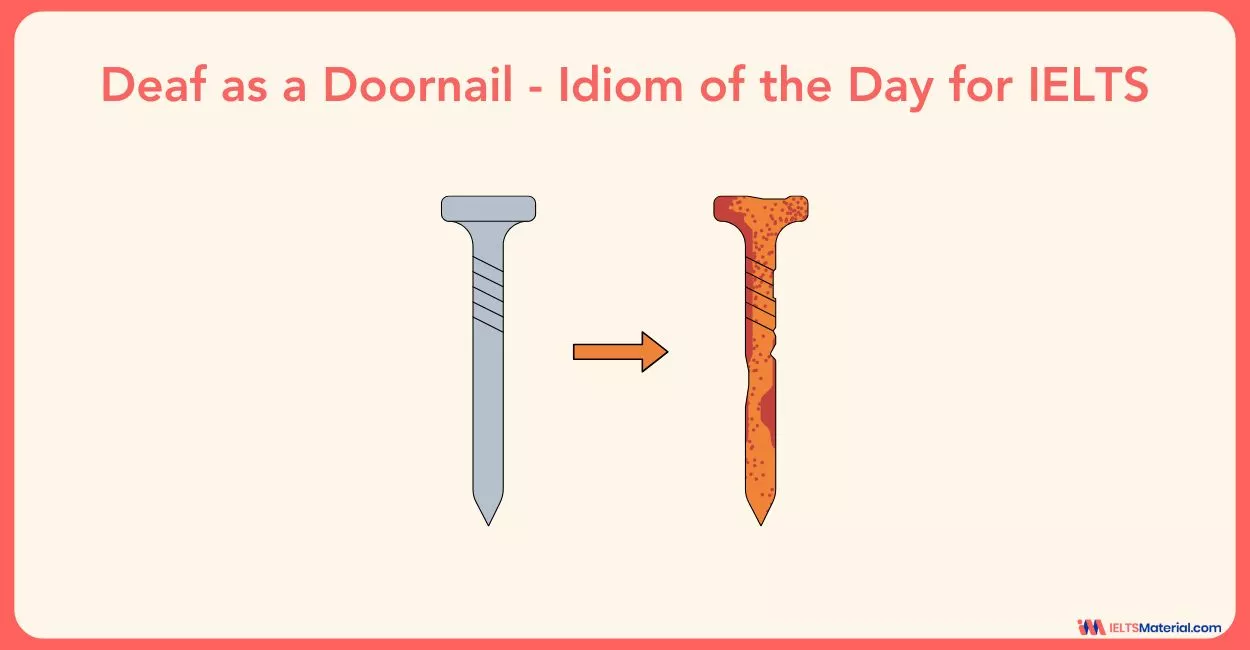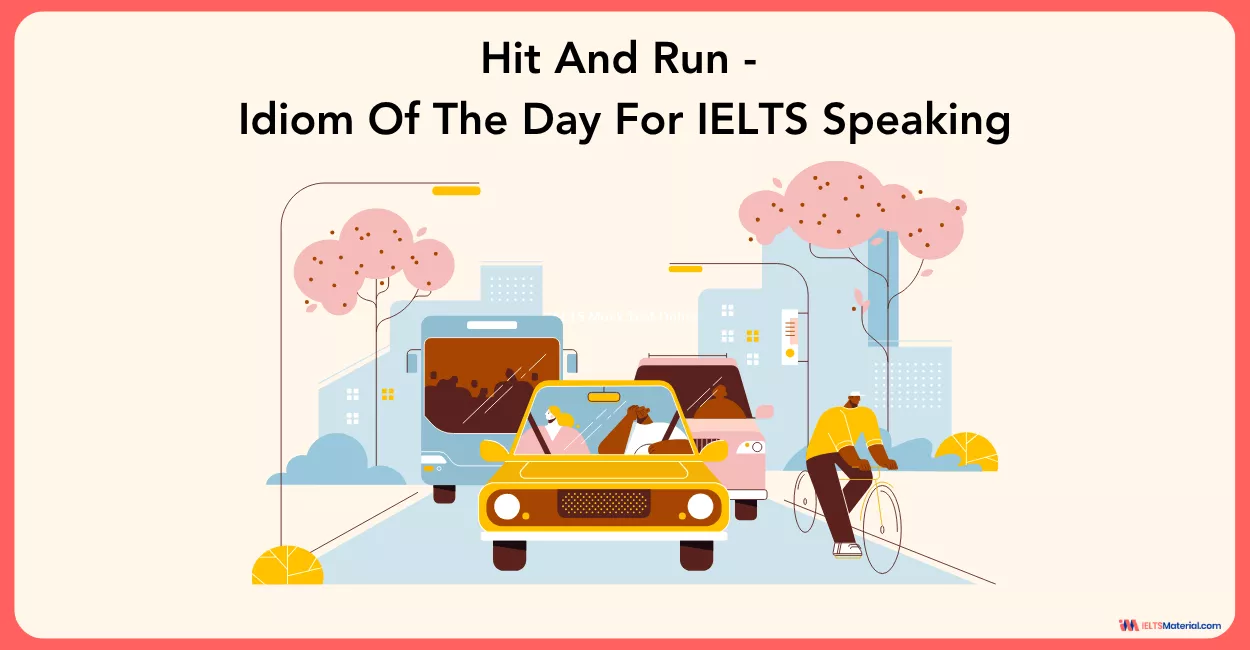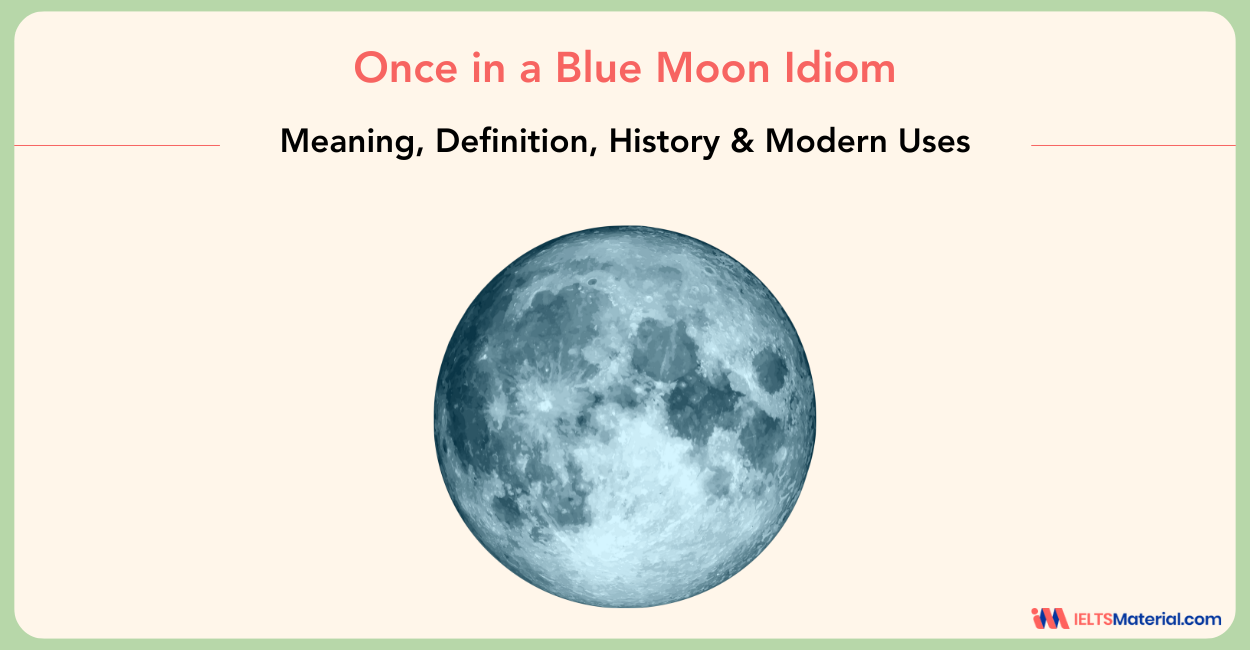Hit and Run - Idiom of the Day for IELTS Speaking
5 min read
Updated On
-
Copy link
In this blog, you will learn how to use the idiom “hit and run” for IELTS Speaking with updated examples, exercises, and tips. Learn when and how to use it naturally in different parts of the IELTS speaking test.
Table of Contents
- Meaning of “Hit and Run”
- “Hit and Run” in Example Sentences
- IELTS Speaking Usage: When to Use “Hit and Run”
- Sample IELTS Speaking Answers Using “Hit and Run”
- Vocabulary Builder: Words Related to “Hit and Run”
- Exercise: Practice Using “Hit and Run” Idiom
- Tips for Using “Hit and Run” Naturally in IELTS Speaking
- Related Idioms for IELTS Speaking

Limited-Time Offer : Access a FREE 10-Day IELTS Study Plan!
Idioms are a powerful tool to boost your Lexical Resource score in the IELTS Speaking test. One idiom that’s frequently used in the context of road safety and crime is “hit and run.” In this post, you’ll learn what this idiom means, how to use it correctly in IELTS answers, and how to avoid common mistakes.
Meaning of “Hit and Run”
Idiom: Hit and run
Definition:
A situation where a driver causes a road accident and then leaves the scene without stopping, reporting the incident, or offering help. This act is illegal and considered a serious offense in many countries.
“Hit and Run” in Example Sentences
Here are some sample sentences to help you understand how this idiom works in everyday speech:
- “They caught the hit and run driver because someone noted his license plate number.”
- “He was sentenced to prison for a hit and run accident that injured a cyclist.”
- “A stronger police presence at intersections has helped reduce hit and run cases recently.”
Want to master more high-band IELTS vocabulary for the IELTS exam? Book a Free Demo Class today.
IELTS Speaking Usage: When to Use “Hit and Run”
You can use this idiom naturally in various IELTS Speaking parts:
- IELTS Speaking Part 1: Talking about road safety, daily commute, or recent news
- IELTS Speaking Part 2: Cue cards involving accidents or memorable events
- IELTS Speaking Part 3: Discussions around traffic rules, public safety, and law enforcement
Make sure that your usage of this idiom is relevant to the context and that you understand the severity it implies—it’s a legal offense and not a casual expression.
Sample IELTS Speaking Answers Using “Hit and Run”
Part 1 Sample Answer
Q: Do you think road safety is a serious issue in your country?
A: Absolutely. Accidents happen almost every day, and sadly, hit and run cases are becoming more common. Many drivers panic and flee the scene instead of taking responsibility.
Part 2 Cue Card Sample
Describe an accident that you have seen. You should say:
- What the accident was
- When it happened
- Who was involved in this acciden0t
- And explain how you felt about it
Sample Answer:
About two years ago, I witnessed a minor but shocking accident near my school. A young man on a motorbike was crossing the intersection when a speeding car came out of nowhere and hit him. What was truly disturbing was that the car didn’t stop—it was a hit and run case.
The driver just sped away, and a few people ran toward the motorcyclist to help him. Luckily, he wasn’t critically injured, but he did suffer a broken leg. I felt really shaken. It was the first time I had seen a hit and run accident with my own eyes. It made me realize how fragile life can be and how important responsible driving is.
Part 3 Sample Answer
Q: What should be done to reduce road accidents?
A: I think there should be stricter punishments for traffic violations, especially for hit and run incidents. Authorities must install more CCTV cameras and encourage witnesses to report such crimes.
Vocabulary Builder: Words Related to “Hit and Run”
To strengthen your vocabulary around this idiom, here are some useful words and phrases that commonly appear in similar contexts:
| Word/Phrase | Meaning | Example Sentence |
|---|---|---|
| Flee the scene | To leave the place of the accident quickly | “The driver fled the scene before police arrived.” |
| Road rage | Aggressive driving behavior | “Road rage often leads to unnecessary accidents.” |
| Witness statement | A report given by someone who saw the event | “The police took witness statements at the crash site.” |
| Traffic violation | Breaking road rules | “Running a red light is a serious traffic violation.” |
| Emergency response | Quick action by medical or police teams | “The emergency response team arrived within minutes.” |
Grab the newly launched Vocabulary for IELTS to level up your preparation.
Exercise: Practice Using “Hit and Run” Idiom
Choose the correct idiom to complete the sentence below:
“Police are appealing for witnesses to help identify the ________________ driver of this morning’s fatal accident.”
A. took a bow
B. throwing money down the drain
C. hit and run
D. a cash-flow problem
Correct Answer: C. hit and run
Tips for Using “Hit and Run” Naturally in IELTS Speaking
To avoid sounding memorized or unnatural, follow these IELTS speaking tips:
- Context is key – Only use this idiom when discussing traffic, law enforcement, or emergencies.
- Use past tense – Most hit and run stories involve past incidents, so structure your grammar accordingly.
- Avoid slang – “Hit and run” is not a slang phrase; it refers to a criminal act. Treat it with seriousness in tone.
- Pair with correct vocabulary – Use it alongside words like “accident,” “driver,” “witness,” and “investigation” for accuracy.
Related Idioms for IELTS Speaking
Here are some more idioms and expressions related to accidents and law:
| Idiom/Expression | Meaning | Example |
|---|---|---|
| Break the law | To do something illegal | “He broke the law by driving under the influence.” |
| A close call | A situation where disaster was narrowly avoided | “It was a close call—I almost got hit by a speeding car.” |
| Behind the wheel | Driving a vehicle | “He fell asleep behind the wheel, which caused the accident.” |
| Run a red light | Drive through a traffic signal that’s red | “The car crashed because someone ran a red light.” |
“Hit and run” is a serious idiom used in real-life situations involving traffic accidents. In the IELTS Speaking test, this idiom is useful when describing unfortunate events or discussing public safety issues. Use it thoughtfully, and it can help you deliver precise, context-rich responses and demonstrate your ability to handle complex topics in English.
If you're aiming for top scores, follow the IELTS Exam Preparation Tips for Band Score of 8+ to further enhance your vocabulary and overall test performance.
Also Check:
Explore IELTS Resources

Start Preparing for IELTS: Get Your 10-Day Study Plan Today!
Recent Articles

Kasturika Samanta

Prity Mallick

Nehasri Ravishenbagam





Post your Comments